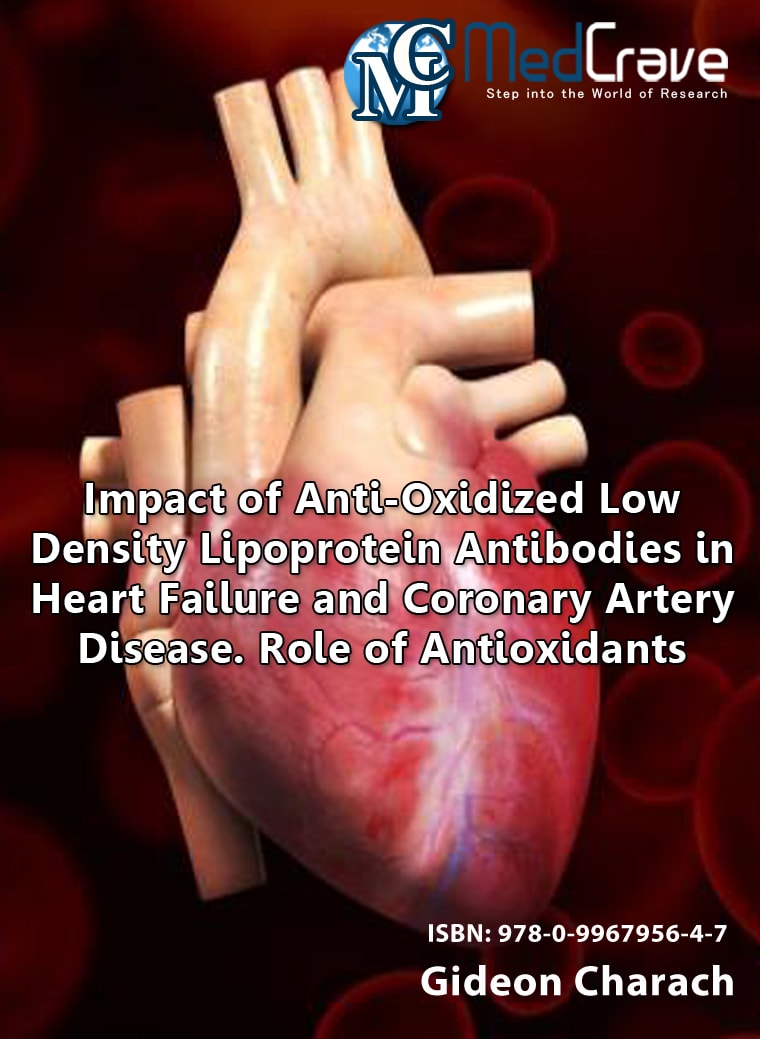eBooks View all | By AtoZ | By category
Impact of Anti-Oxidized Low- Density Lipoprotein Antibodies in Heart Failure and Coronary Artery Disease. Role of Antioxidants
By Gideon Charach
Department of Internal Medicine, Israel
Published: Jul 26, 2016 | pg. no: 1-24
Abstract: Oxidative stress may play a significant role in the pathogenesis of heart failure (HF). Antibodies to oxidized low-density lipoprotein (Ox LDL Abs) reflect an immune response to LDL over a prolonged period and may represent long-term oxidative stress in HF. The Ox LDL plasma level is a useful predictor of mortality in HF and coronary artery disease (CAD) patients, and measurement of the Ox LDL Abs level may allow better management of those patients. Antibodies to Ox LDL also significantly correlate with the New York Heart Association (NYHA) score. Smoking, hypercholesterolemia, hypertension and obesity are known risk factors for atherosclerotic coronary artery disease (CAD) leading to heart failure, but these factors account for only 50% of all cases and our understanding of the pathogenesis underlying HF remains incomplete. Nutrients with antioxidant properties can reduce the susceptibility of LDL to oxidation. Treatment by antioxidants may be an adjunct to lipid-lowering, angiotensin converting enzyme inhibition and metformin (in diabetes) therapy due to the greatest impact on CAD and HF. There are many reports that suggest a protective effect of antioxidant supplementation on the incidence of HD. This review summarizes the data on Ox LDL Abs as a predictor of morbidity and mortality in HF patients.
View eBook
